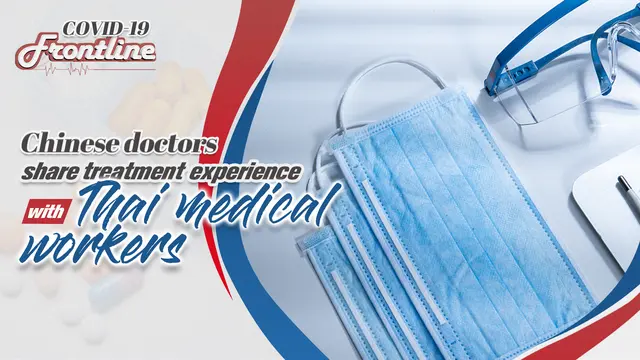**Editor's note: **On March 12, 2020, the World Health Organization (WHO) declared COVID-19 a pandemic, and as of Friday (April 24), about 200 countries and regions have confirmed over 2,549,000cases, according to the WHO. On CGTN's live program "COVID-19 Frontline," we invited medical workers and experts from China's former epicenter Wuhan and from all over the world to share their experiences and take questions from social media, in the hope of providing more information for those who are battling against the pandemic.
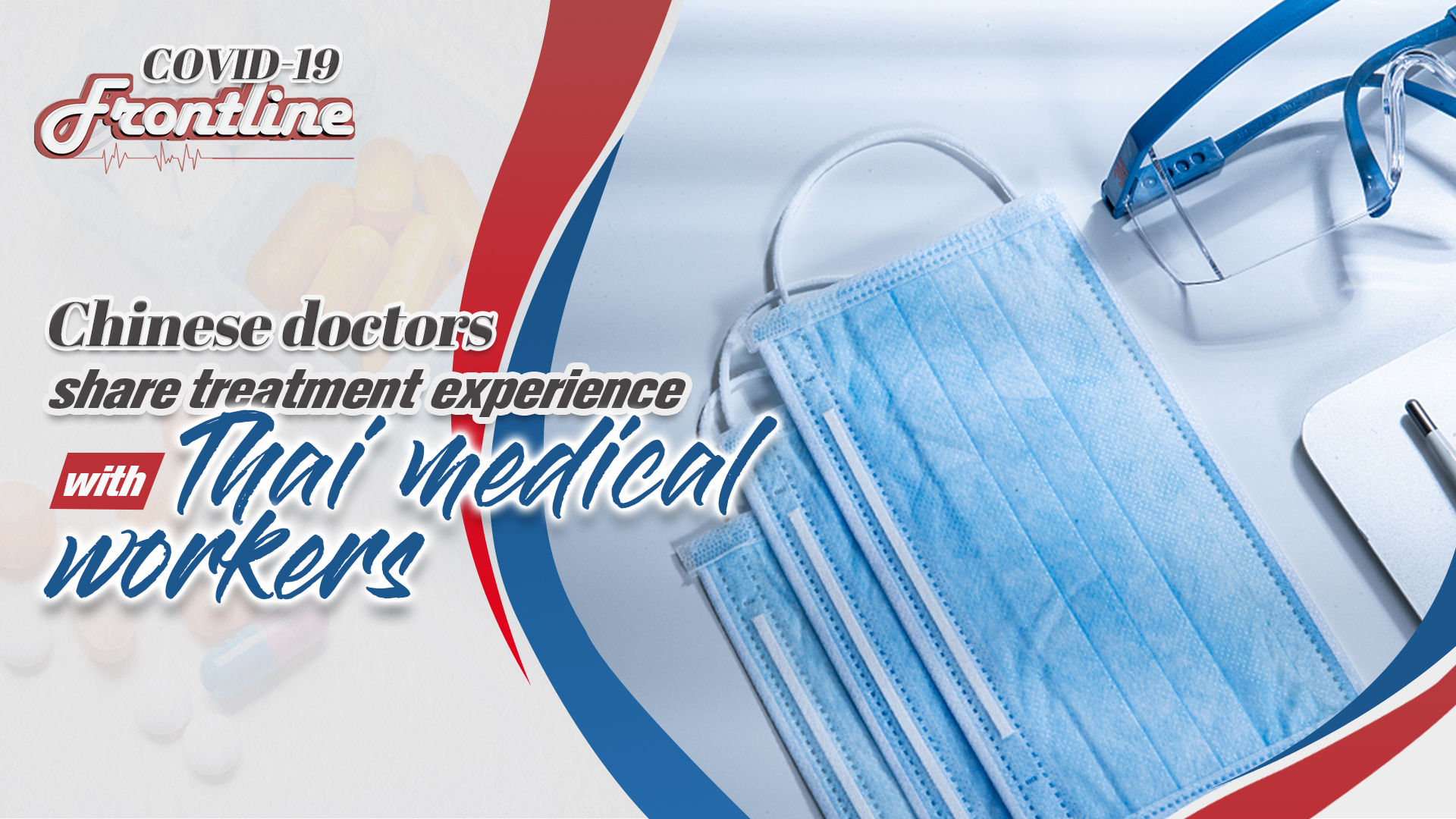
In the latest episode of CGTN's live stream program "COVID-19 Frontline" held on April 23, doctors from China and Thailand including Dr. Cao Bin, professorand vice president of the China-Japan Friendship Hospital, and Professor Prasit Watanapa, dean of the Faculty of Medicine Siriraj Hospital, Mahidol University, sharetheir experiences in dealing with the coronavirus pandemic.
Chuan Leekpai, president of the National Assembly of Thailand sent his greeting via video, saying the Chinese-Thai medical expert video meeting program was significant. China's experience in fighting COVID-19 is valuable for Thailand and other countries. The program can help spread COVID-19 prevention information to more people. He expressed thanks to China for helping Thailand and looked forward to welcoming Chinese tourists as soon as the pandemic situation improves.
02:49
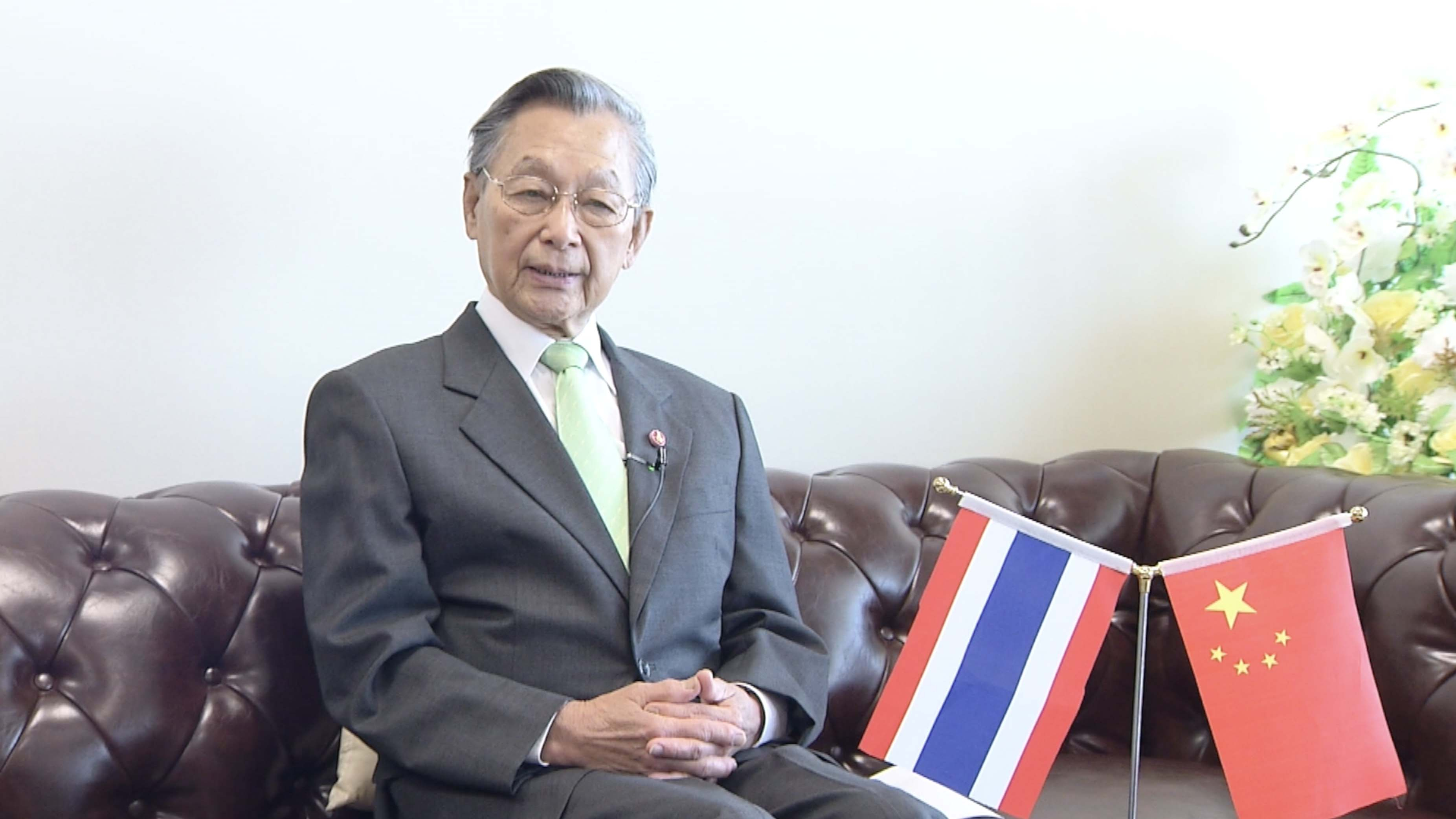
The Chinese guests in theepisodeare from the China-Japan Friendship Hospital. The hospital dispatched a medical team of more than 100 peopleto Wuhan and treated over100 COVID-19 patients. The Thai guests include seven medical experts led by Watanapa.
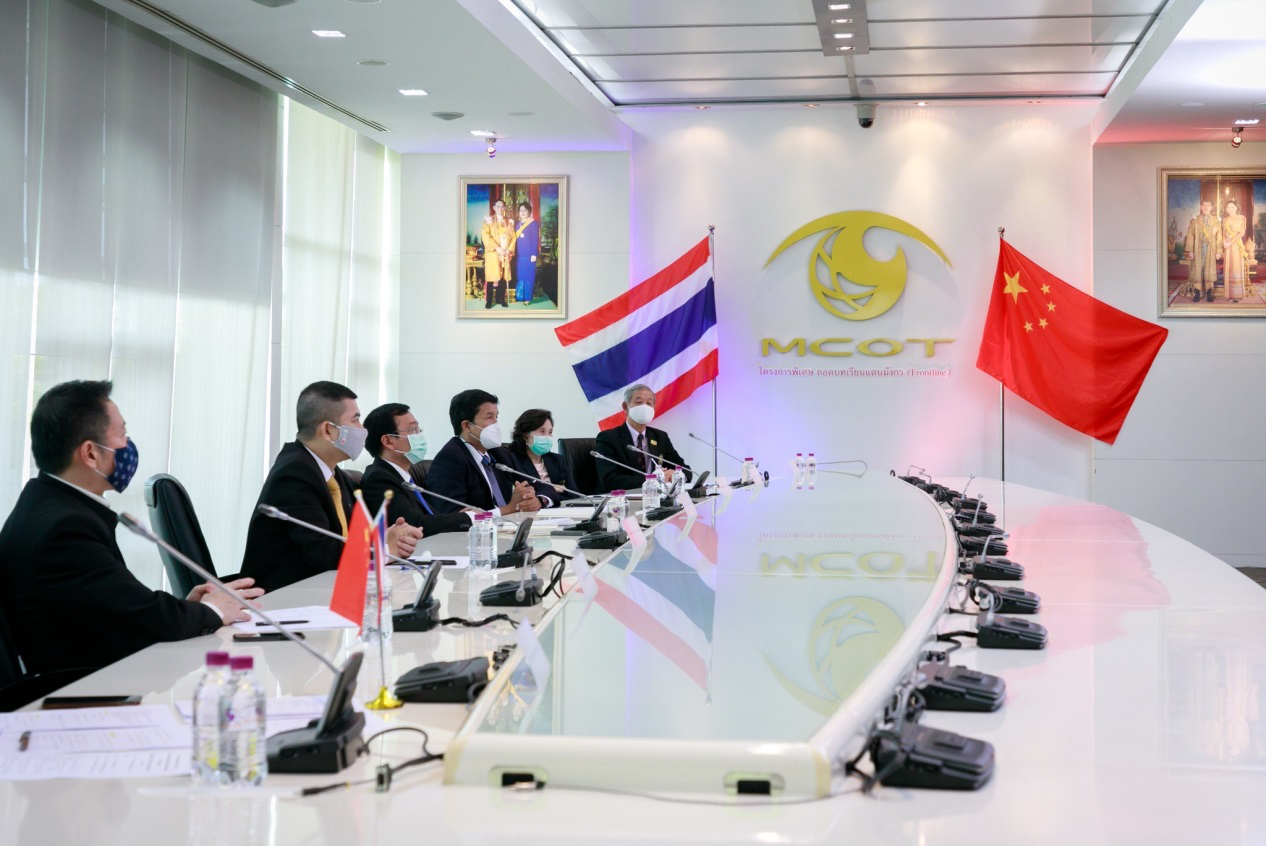
Doctors from Thailand share COVID-19 treatment experience via a video meeting. /CGTN
As of April 22, the total number of confirmed COVID-19 cases in Thailand has reached 2,826, and 49 people have died of the disease. Moretourist sites in Thailand, including popular tourist island Koh Samuiunder, are under lockdown to contain the pandemic.
Cana vaccine developed in China work in Thailand?
Professor Amorn Leelarasamee, presidentof the Medical Association of Thailand, was concerned about virus mutation. He wanted to know whether a vaccine produced in one country can be used in another.
Dr. Cao Bin answered by saying that the coronavirus is very different from the influenza virus. It seems that scientists have advanced technology, and he doesn't consider the mutation of the virus a barrier for the development of the vaccine. There are other technical barriers for vaccine development such as antigenic response.
03:40
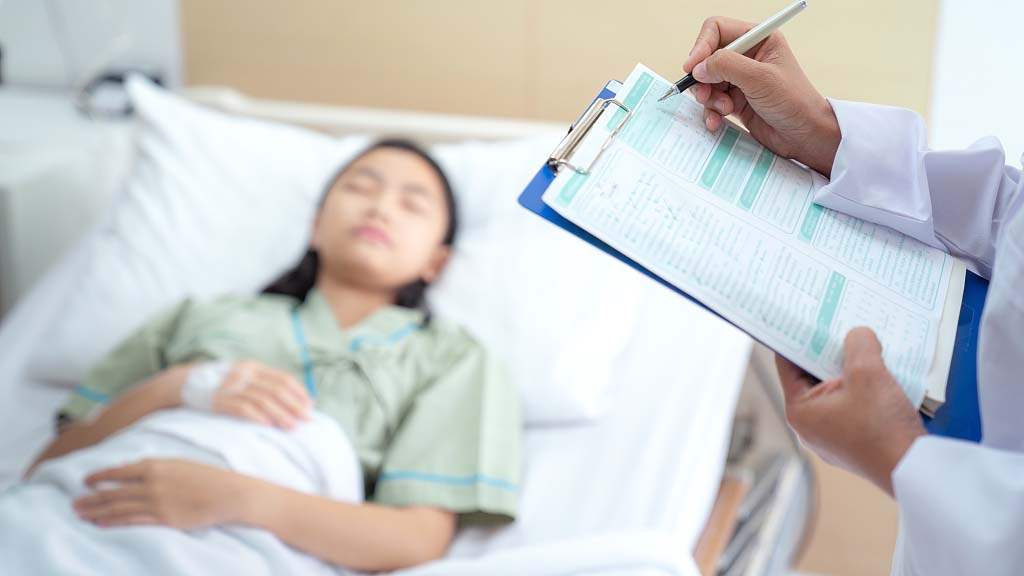
Are there any factors that can help predict the clinical deterioration of patients?
Associate Professor Chanchai Sittipunt from King Chulalongkorn Memorial Hospital, Chulalongkorn University, said that in some patients, symptoms can progress from mild to severe in a few days. He wanted to know whether there are any predictive factors for the deteriorationand how to prevent it from happening.
Zhang Yi, attending physician at the Department of Pulmonary and Critical Care Medicine at the China-Japan Friendship Hospital, suggested that patients with mild symptoms should be admitted as early as possibleto prevent the rapid health declines in COVID-19 patients.
Dr. Wang Yimin, attending physician from the same department, added that there are several risk factors that should be taken into consideration, such as the patient's age, abnormal coagulation function and the sequential organ failure assessmentscore(SOFA score).
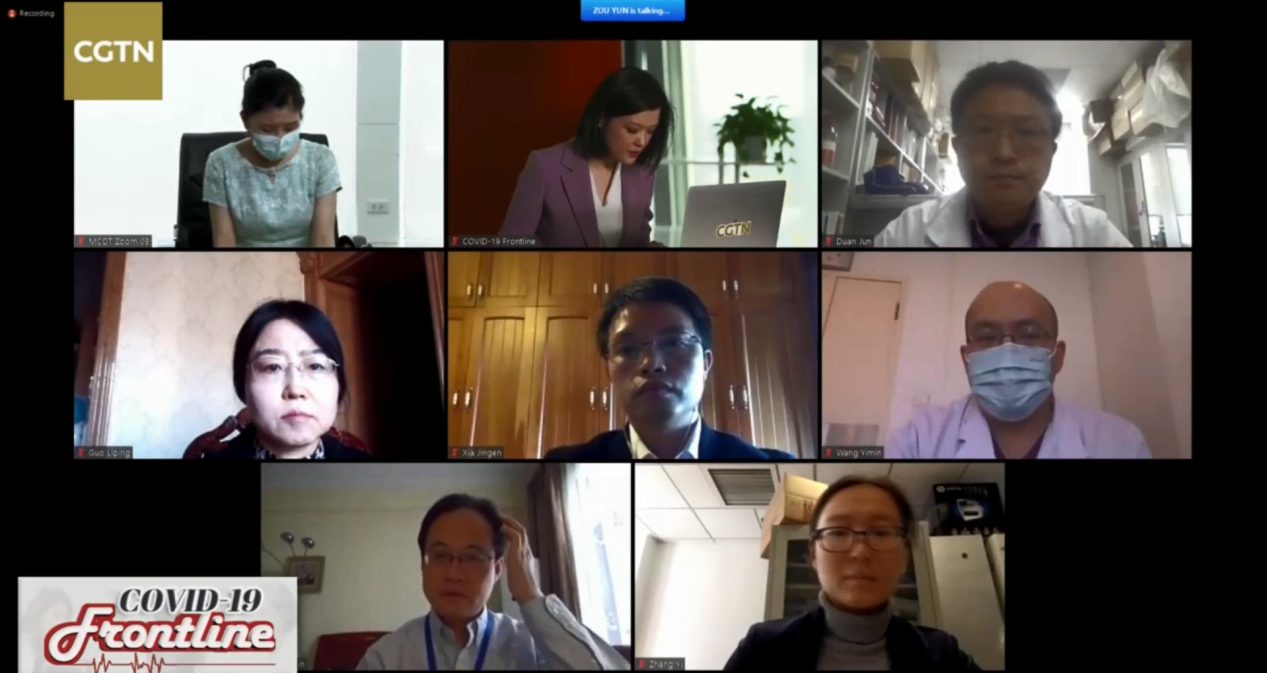
Chinese doctors share COVID-19 treatment experience via video conference. /CGTN
What is the most suitable treatment for COVID-19 patients with ARDS?
Assistant Professor Prakarn Thomyangkoon, senior advisor at the Department of Medical Services, part of the Ministry of Public Healthof Thailand, wanted to know the right medication for COVID-19 patients with acute respiratory distress syndrome(ARDS).
Chinese respiratory therapist Xia Jingen said that it's common to use respiratory support on patients with ARDS, and non-invasive techniques are preferred. According to Xia, high flow oxygen therapy,where oxygen is delivered to a patient at rates of flow higher than that delivered in standard oxygen therapy, can help many patients with mild symptoms avoid intubation. If the patient's condition is not improved, non-invasive positive pressure ventilationwill be employed. But if all non-invasive techniques are not effective, intubation should be performed as early as possible to protect the lungs.
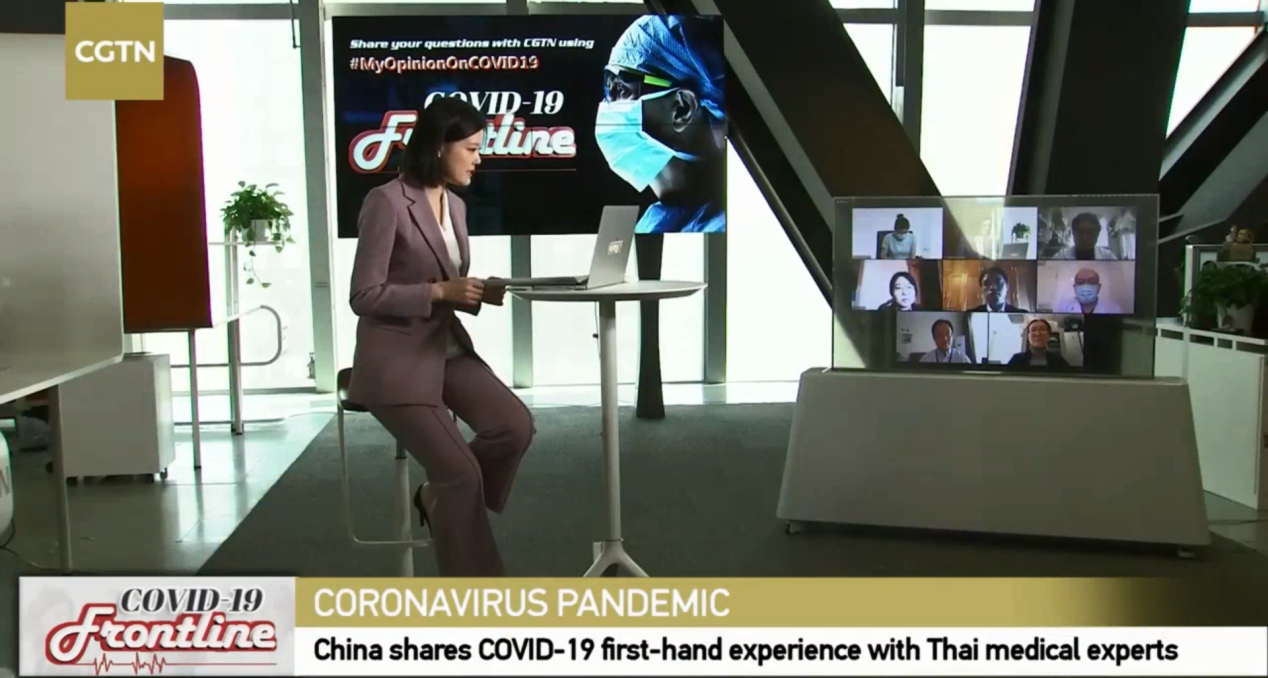
CGTN's livestream program "COVID-19 Frontline" /CGTN
The strategy of anti-viral treatment
Professor Kulkanya Chokephaibulkit, from the Division of Infectious Diseases at the Department of Pediatrics, Faculty of Medicine Siriraj Hospital, Mahidol University, asked about the strategy of anti-viral treatment.
Dr. Cao Bin introduced the clinical trial results of lopinavir/ritonavir, a medicationfor the treatment and prevention ofHIV/AIDS.He also mentioned convalescent plasma used in Wuhan. He said two papers about the treatment have been published, but the number of patients examinedis not enough.
06:27

Apart from the above, doctors from Thailand also shared their experience in treating COVID-19 patients with mild symptoms. A combination of chloroquine and lopinavir is applied on COVID-19 patients with obesity and other diseases. Dr. Cao Bin also agreed that for patients who are at higher risk of developing serious complications, a combinationof anti-viral drugs is more effective than monotherapy.
In later episodes of "COVID-19 Frontline," more frontline doctors and experts from Wuhan will join to share their experience with colleagues from other parts of the world. If you have any questions regarding COVID-19, share them with us using #MyOpinionOnCOVID19 on Facebook.
Videos by Zeng Hongen
Cover image by Du Chenxin
 简体中文
简体中文

